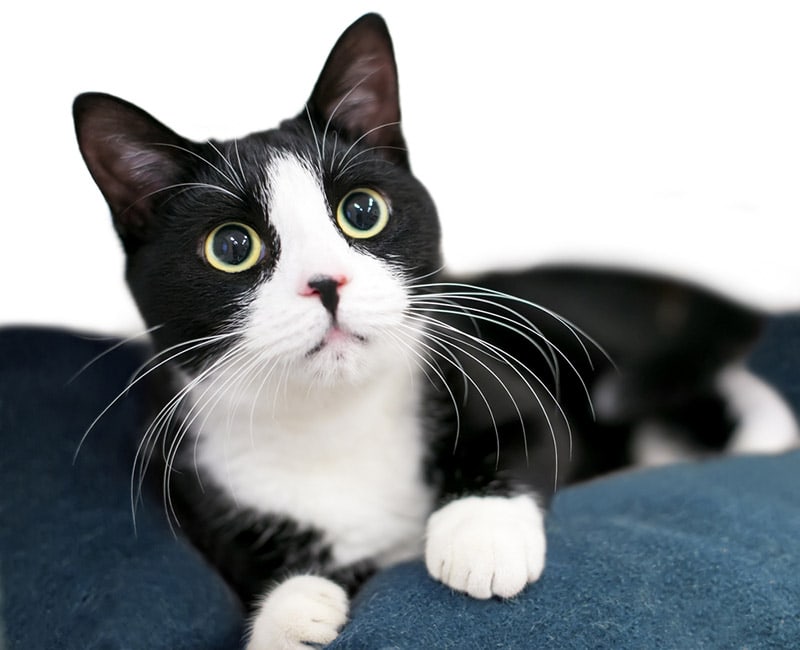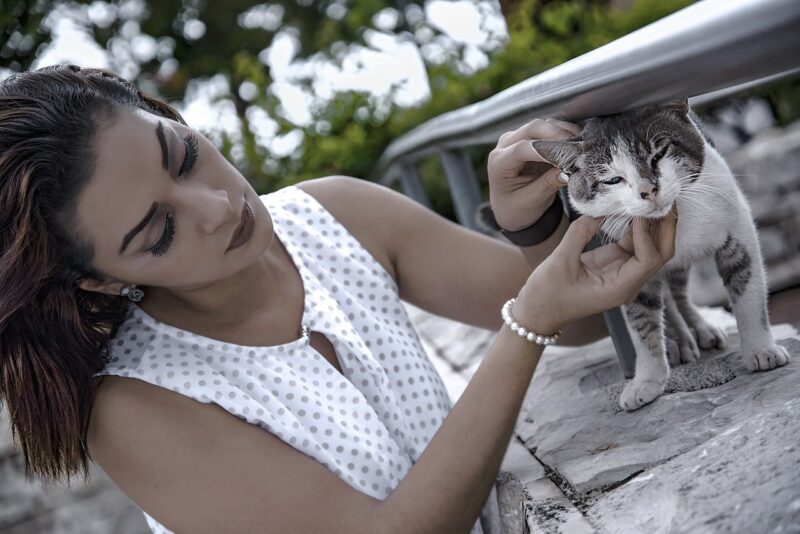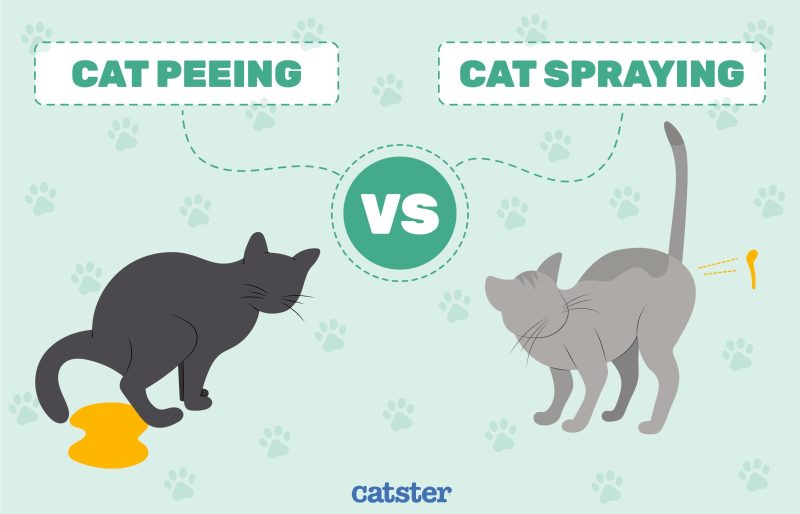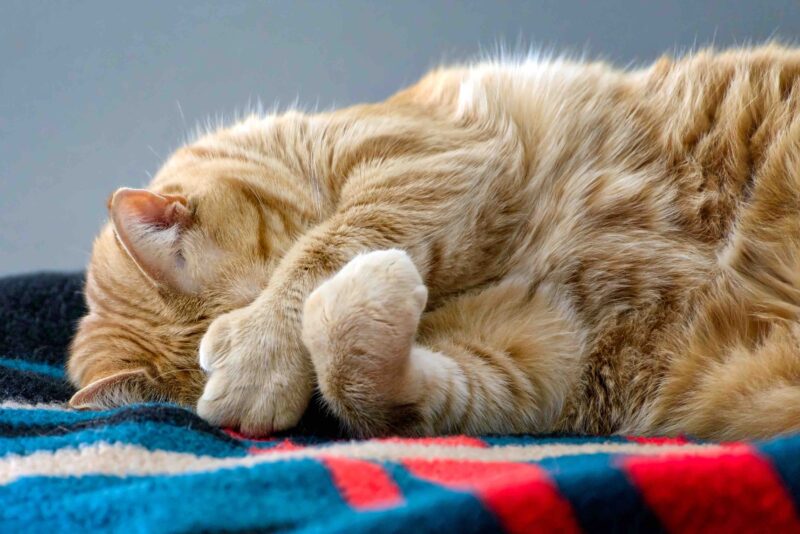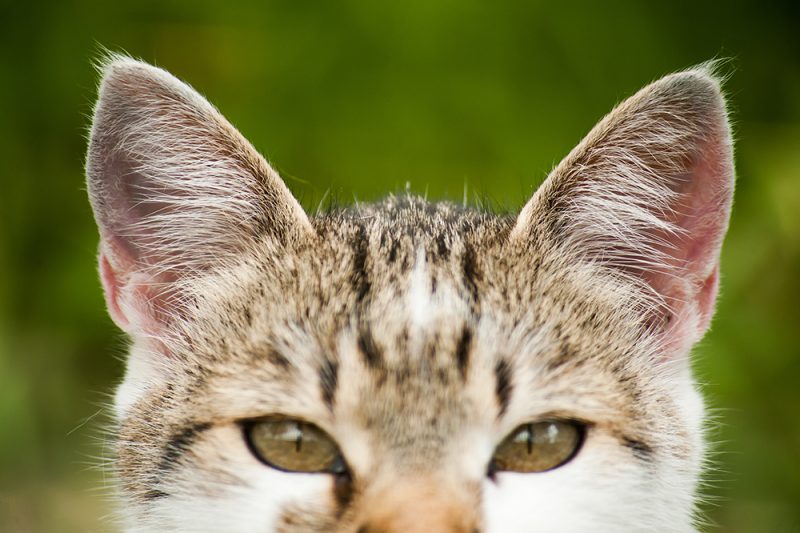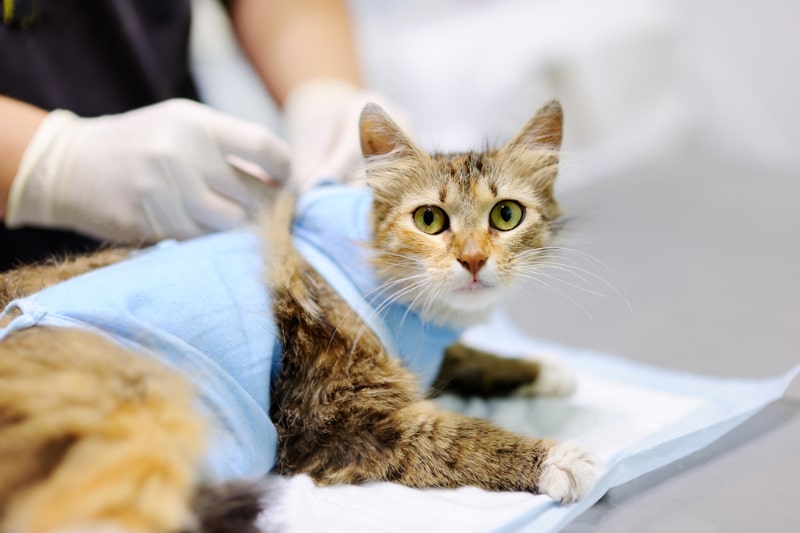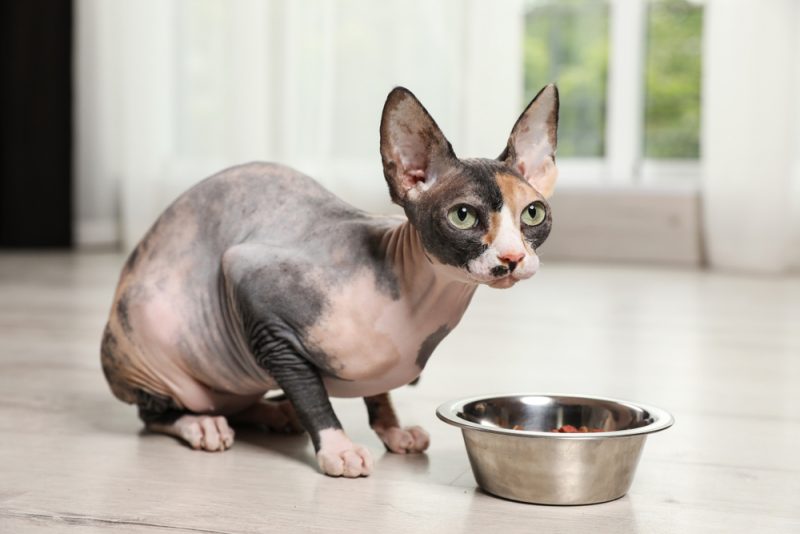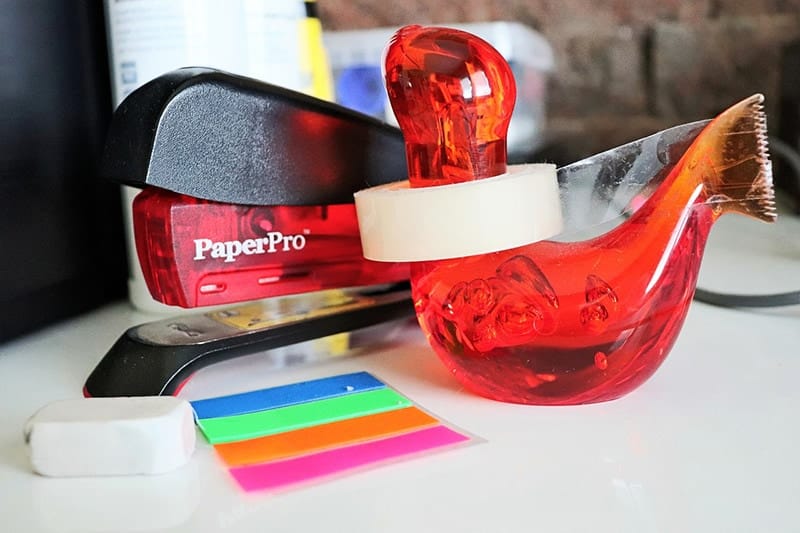In this article
View 4 More +As a pet owner, having your cat diagnosed with retinal detachment can be overwhelming. It can happen quickly, with few (if any) warning signs, and the consequences—looking after a potentially blind or visually impaired cat—can be drastic. Thankfully, if retinal detachment is caught early enough, vision can be restored, meaning your cat can see again, and this can happen very quickly! But for this to occur, it’s important that you know what to look for, and that you seek prompt veterinary attention.
This article will explore retinal detachment in more depth: what it means, how it happens, and where to go next when dealing with this tricky feline disease.

What is Retinal Detachment in Cats?
To understand this, we need to know a bit about the retina. The retina is a thin film-like layer of cells that sits in a special spot at the very back of the eye. It is made up of “light-sensitive cells”—cells that receive light from the environment and transmit it to the brain. The brain then interprets this light, which is what enables cats (and people) to see.
Retinal detachment occurs when this layer of cells peels off from the back of the eye. The detachment can either be “partial”, meaning only a portion of the retina is detached, or “full”, meaning the entire retina is detached and floating free in the back chamber of the eye. Retinal detachment can affect either one eye or both eyes.
If the retina is partially detached, or if only one eye is affected, your cat will most likely have poor or reduced vision (but still be able to see). If both retinas are fully detached, your cat will be completely blind.
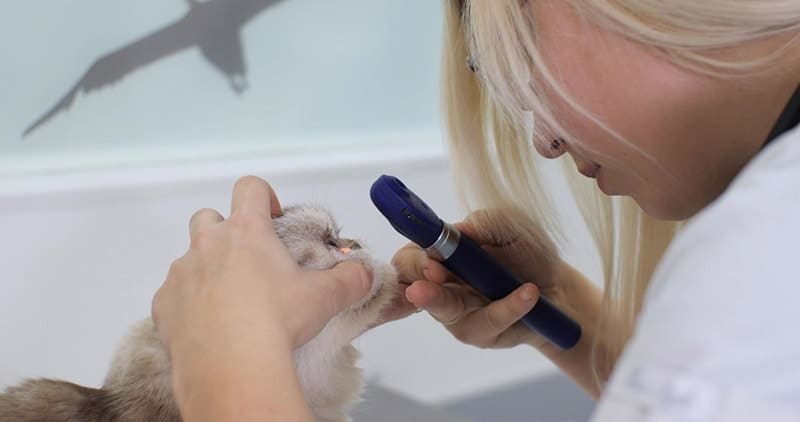
What Are the Signs of Retinal Detachment in Cats?
Most cat owners first notice signs associated with their cat being blind. Signs of blindness include:
- Bumping into objects in the home environment
- Dilated pupils—large black circles that don’t seem to change appearance
- Change in temperament or behavior
- Increased vocalizing or meowing
- Walking around aimlessly
- Hemorrhage (blood) in the eye
Most cats are older when they are diagnosed with retinal detachment, though young cats with pre-existing disease or trauma to the eye can also be affected.
What Are the Causes of Retinal Detachment in Cats?
Broadly speaking, vets will try to decipher if your cat’s retinal detachment is caused by “local” problems or “systemic” problems, and the two are very different:
Retinal Detachment – Local Disease
This refers to “eye-related” causes of retinal detachment. Generally, only one eye is affected, and it is the eye only, not the rest of the body. Causes of local retinal detachment include:
- Tumors along the visual pathway to the brain
- Damage to the eye and its nerves by trauma (for example, a fall or road-traffic accident)
- Cataracts (changes to the lens of the eye)
- Inflammatory conditions, including auto-immune diseases
- Infections with viruses or protozoa
Retinal Detachment – Systemic Disease
This is probably more common, and usually causes retinal detachment in both eyes. The main systemic disease that causes retinal detachment is high blood pressure, or “hypertension”. High blood pressure in cats can be related to kidney or thyroid disease, but it can also occur of its own accord, with no underlying disease. But how does high blood pressure cause retinal detachment and vision loss?
Firstly, it changes the pressures in the eye, leading to the retina peeling away from the back of the eye, as we described. Secondly, it can cause small blood vessels within the eye and retina to rupture and bleed, which makes it even harder for the cat to see.
Can Retinal Detachment Be Treated?
This depends on a few factors, and a veterinarian will be able to guide you through the options.
If you need to speak with a vet but can't get to one, head over to PangoVet. It's an online service where you can talk to a vet online and get the advice you need for your pet — all at an affordable price!

Retinal detachment caused by high blood pressure can be treated with blood pressure medications. Sometimes (particularly if diagnosed early, before complete detachment), the retina is able to re-attach, and cats regain vision. However, there is no guarantee that this will happen. If there is underlying kidney or thyroid disease, these will also need to be treated.
Unfortunately for most “local” causes of retinal detachment, re-attachment is not possible, and your cat will remain blind in one or both eyes. Treatment of auto-immune diseases or infectious diseases is usually possible and certainly recommended, but again, there is no guarantee that re-attachment of the retina will occur. Referral to a specialist ophthalmologist (eye-vet) will give you the best idea as to the prognosis of your cat regaining vision.
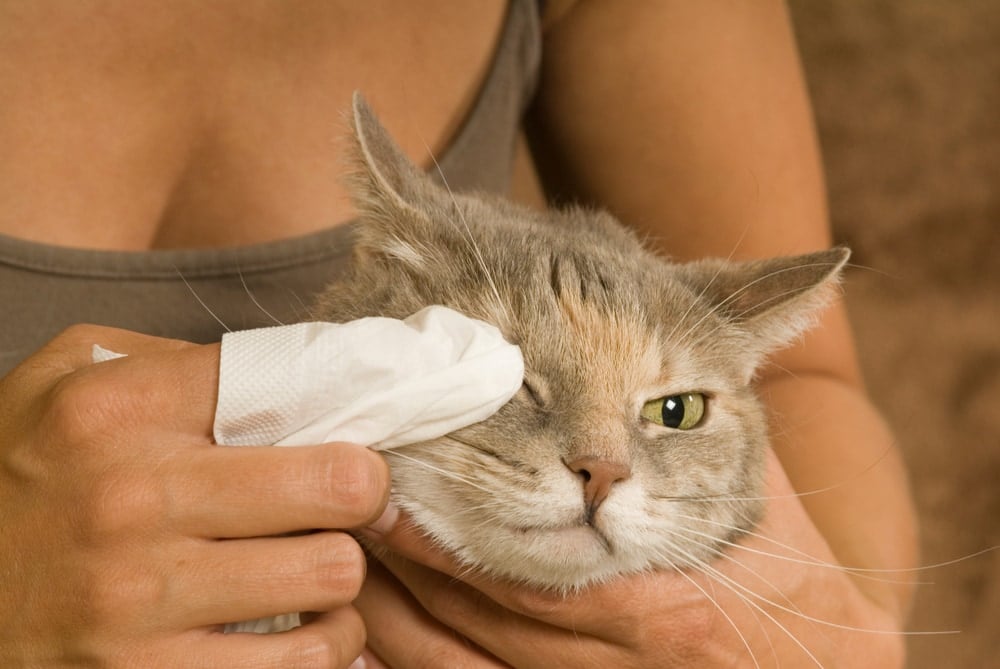
How Do I Care for a Blind Cat?
At this point, there is some good news—most blind cats live full and happy lives! They will require a little extra care from you, as well as a few weeks of adjusting to being blind. However, lots of owners are very pleasantly surprised by how well their cats do without vision. Below is a summary of the main things you will need to do and think about when caring for a blind cat:
- Keep your cat indoors, and ensure any outdoor areas are well-fenced (“cat-proof”).
- Talk to your cat quietly as you approach, so that he or she doesn’t get startled.
- Ensure everything at home stays the same. Blind cats do really well with familiarity and routine, so make sure that beds, litter trays, food bowls, and water bowls are always in the same spot.
- Try to keep your cat off high surfaces, as they could fall.
- Initially, it is best for blind cats to be walking by themselves. This allows them to adjust to being blind faster (by feeling, hearing, and smelling) than they would if they were carried around.
This is a short list only and of course, every cat and every home environment will be different. It helps to discuss looking after a blind cat with a veterinarian, or with someone else who has cared for a blind cat.
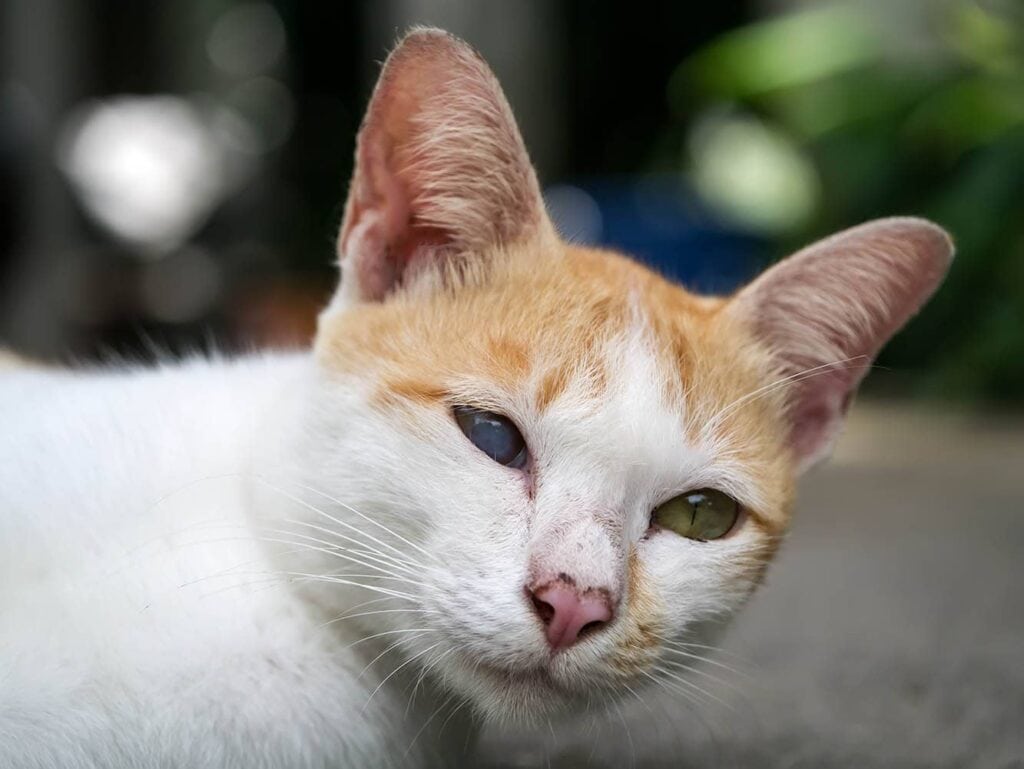

Frequently Asked Questions (FAQ)
How Do Vets Diagnose Retinal Detachment?
A detached retina can usually be visualized by vets with a special instrument called an ophthalmoscope. This instrument allows the back of the eye, where the retina sits, to be seen. If a vet sees retinal detachment, they may want to run a few other tests:
- Blood pressure readings to check for high blood pressure.
- Blood tests to check kidney and thyroid function.
- Tonometry—this measures pressure within the eye itself.
Combining the results of these tests will give the vet an idea of what treatment is necessary to get the best outcome for your cat.
I’m Moving to a New House – Will My Blind Cat Be Okay?
Yes, your cat will be okay, but it is a big change for a blind cat. They will need extra attention, as well as another “adjustment period”. We recommend discussing your move with a vet to make sure it’s as stress-free as possible for you and your cat.
Are There Any Warning Signs for Retinal Detachment?
More often than not, cats don’t give many warning signs before their retina detaches. But there are a few exceptions:
- Unusual red appearance to one or both eyes
- Unusual movements or reluctance to move as much as normal
- Changes to appetite and/or thirst
- Changes to toileting habits
- Changes to behavior or mood
Most of these signs are not specific to early retinal detachment and can be caused by a number of other diseases. For this reason, if you notice that your cat is a bit “off color” or “out of character”, it is best to get them seen by a veterinarian.

Conclusion
Retinal detachment in cats is difficult to manage. Hearing the news that your cat is now blind can be startling. Thankfully, diagnosing retinal detachment is relatively easy, and some cats will naturally re-attach their retina and restore some vision once the underlying problem is treated.
If this is not possible, most blind cats adapt and thrive in their home environment—a real testament to their intelligence!
Featured Image Credit: Mary Swift, Shutterstock
